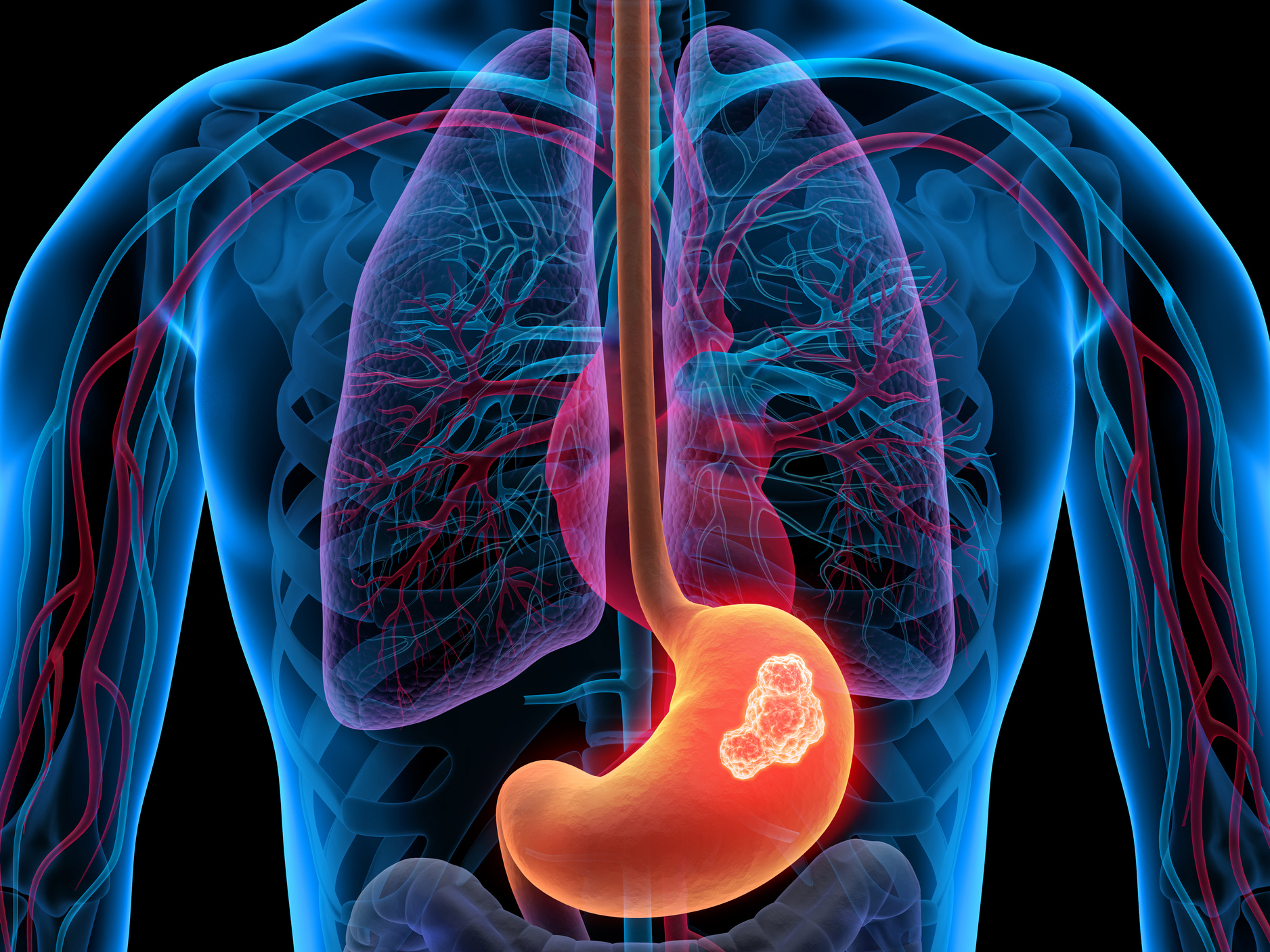Get Easy Health Digest™ in your inbox and don’t miss a thing when you subscribe today. Plus, get the free bonus report, Mother Nature’s Tips, Tricks and Remedies for Cholesterol, Blood Pressure & Blood Sugar as my way of saying welcome to the community!
The strange type of stomach cancer striking people under 60

If you look at stomach cancer statistics, you’ll see that fewer people are getting this terrible disease than ever before. That’s good news. But it’s also misleading…
Even though stomach cancer is getting diagnosed less overall, it’s on the rise in one surprising group — people under 60.
In the past, most people weren’t diagnosed with stomach cancer until their senior years — their late 60s, 70s or even older. But suddenly people in their 30s, 40s, and 50s are more at risk than ever.
And the stomach cancer that strikes younger folks is a strange and dangerous type…
Stomach cancer is more dangerous for younger people than older ones
A new study from researchers at the Mayo Clinic shows that a certain type of stomach cancer is becoming alarmingly common in people in their 30s, 40s, and 50s.
They looked at cancer statistics between 1973 and 2015, examining 75,225 individual cases. Here’s what they determined…
People under 60 now account for 30 percent of stomach cancer cases. In 1995, they only accounted for 18 percent of all cases. That’s nearly double!
Related: The compound with the most scientific cred against stomach cancer
Researchers also concluded that the type of stomach cancer younger people get is different than the type older people get…
It grows quicker, spreads quicker and is more resistant to treatments like chemotherapy. As a result, young-onset stomach cancer has a worse prognosis. To top everything off, it’s also typically diagnosed at a later stage because younger people and their doctors are less likely to think about cancer in the stomach. After all, it mostly affected older people… until now.
Stay alert for the signs of stomach cancer
Whether you’re over 60 or under 60, you need to be aware that young-onset stomach cancer is on the rise. That way, if you or someone you love starts experiencing stomach symptoms, you’re less likely to brush them off. More awareness could start saving people.
Here are the most common symptoms that affect old and young alike:
- Feeling full before finishing a meal
- Reflux
- Abdominal pain
- Unintentional weight loss
- Difficulty eating
These could be symptoms of far less serious conditions too. But it’s better to get them checked out early either way — and no matter what your age.
How do you lower your risk of stomach cancer?
Focus on diet first. There’s research that links processed meat to a higher risk of developing a tumor in the stomach. So, keep your processed meat-eating to a minimum. There’s also evidence that not eating enough fruits and veggies increases your risk. So, get at least five servings of fruits and veggies per day. Drinking too much alcohol can cause your stomach cancer risk to rise too. So, stick to one to two drinks per day, max.
If you want to take your prevention efforts even further, you could also take curcumin supplements. There’s some evidence from animal studies and anecdotal reports that curcumin can kill cancer cells in your stomach and stop them from spreading.
It’s a good idea to talk to a natural health practitioner about curcumin before you start taking it to get dosing right and make sure it interacts well with other prescriptions and supplements you’re taking. But roughly 500 to 1,000 milligrams of curcumin per day should have an anti-inflammatory effect and improve gut health, which could influence stomach cancer risk as well.
Editor’s note: Did you know that when you take your body from acid to alkaline you can boost your energy, lose weight, soothe digestion, avoid illness and achieve wellness? Click here to discover The Alkaline Secret to Ultimate Vitality and revive your life today!
Sources:
- Incidence of early-onset gastric cancer increasing in the U.S. — MedicalXpress
- Many younger patients with stomach cancer have a distinct disease, research discovers — MedicalXpress
- Early-onset gastric cancer is a distinct disease with worrisome trends and oncogenic features — Surgery
- Stomach cancer: more than 30% of cases affect under-60s — Yahoo News
- Risks and causes of stomach cancer — Cancer Research UK
- How much turmeric should you actually be taking? — Well + Good












